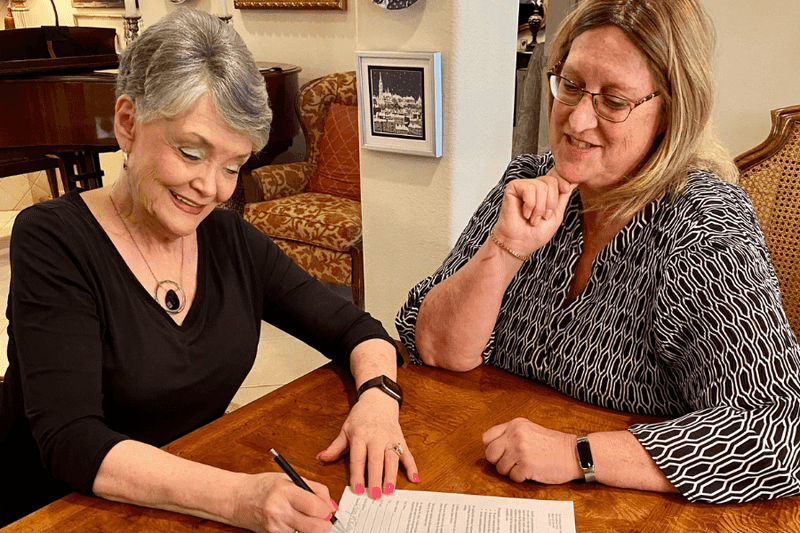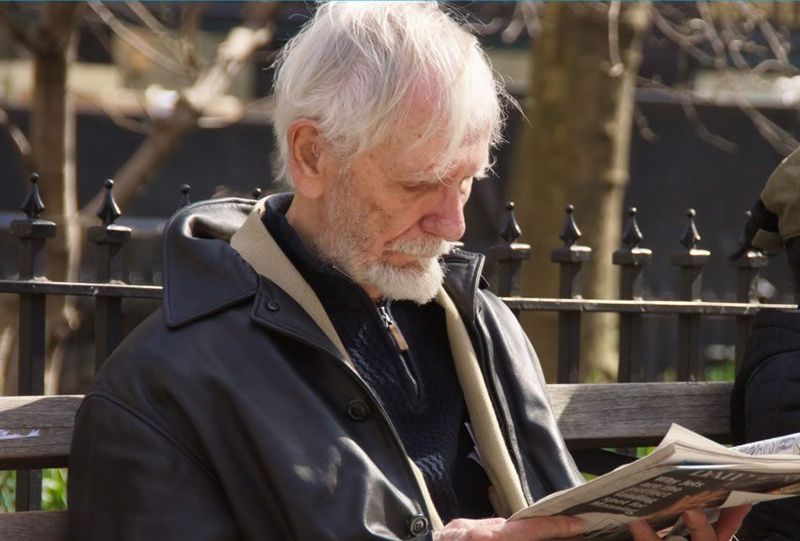Boomers and Boundaries: 17 Ways to Say No Without Guilt After 60
By the time you hit 60, you’ve spent a lifetime showing up—for family, friends, careers, and commitments. But here’s the truth: you don’t owe everyone a yes.
Learning to say “no” isn’t selfish—it’s self-preservation. And at this stage in life, protecting your time, energy, and well-being is essential.
Whether it’s declining extra responsibilities, setting limits with adult kids, or simply choosing rest over running errands, these 17 ways to say no (without guilt) are about reclaiming your space with grace and confidence.
Because you’ve earned the right to honor your needs—and anyone who truly cares will understand that. Let’s redefine what boundaries look like after 60.
1. “I appreciate the offer, but I’m not available.”

Graciously turning down an offer is an art, and it starts with this simple phrase. It’s the kind of line that makes you feel empowered, standing your ground without the need for elaborate explanations.
Remember, you’re not obligated to fill in the silence with reasons or justifications. By stating you’re not available, you gracefully protect your time and energy.
In a world where everyone’s calendar seems to be bursting at the seams, being unavailable is, in itself, a powerful statement. It subtly communicates that your time is precious and you’re prioritizing yourself. It’s okay to be unavailable for others if it means you’re available for yourself.
Next time you’re teetering on the edge of a reluctant yes, remind yourself that it’s perfectly fine to be unavailable. After all, you’ve earned the right to say no with poise and confidence.
2. “That’s not something I can commit to right now.”

Sometimes, life throws opportunities at us that we simply cannot take on. Saying you can’t commit to something right now acknowledges the genuine limits of your capacity. It’s a way of respecting both your boundaries and the person making the request.
When you utter these words, you’re being honest not just with the requester but with yourself. There’s no need to stretch yourself thin anymore. As we age, it becomes evident that time and energy are finite resources.
Imagine saying no with this phrase and feeling the weight lift off your shoulders. You’re no longer tied to obligations that don’t fit your life at the moment.
By setting such boundaries, you allow yourself the freedom to focus on what truly matters to you. It’s about managing commitments with wisdom and grace.
3. “I’ve decided to keep that time for myself.”

Claiming time for yourself is a declaration of self-love. When you say you’re keeping that time, you’re prioritizing your own needs above others’ expectations. It’s an act of carving out moments for self-care, contemplation, or simply being.
This phrase isn’t just about saying no, it’s about saying yes to yourself. Think about how often you’ve put others first, shelving your needs for another time. Well, now that time is here.
By choosing yourself, you’re recharging your batteries and acknowledging that your time is valuable. This isn’t selfish; it’s necessary.
When you protect your own time, you’re better equipped to be present and joyful in all areas of life. It’s a gentle reminder that self-care isn’t a luxury, but a priority, especially as you navigate life past 60.
4. “I’m simplifying my schedule, so I’m stepping back from things like this.”

Life over 60 can mean a busy calendar, but simplifying your schedule is a gift you give yourself. When you say you’re stepping back, you’re not retreating in defeat; you’re intentionally focusing on what truly matters.
This phrase helps others understand that your decision isn’t personal; it’s a strategic choice for a more meaningful life. By stepping back, you’re making room for what brings you joy and fulfillment.
Visualize the serenity of a clear schedule, where your days are filled with activities that energize you rather than exhaust you. It’s about quality over quantity, choosing depth over breadth.
Simplifying doesn’t mean doing less of what you love; it means doing more of it. It’s about creating space for spontaneity, unexpected joys, and the simple pleasures that too often get crowded out.
5. “That doesn’t work for me.”

There’s beauty in brevity, and this phrase is all about that. Simple, strong, and direct, saying “that doesn’t work for me” is like setting up an invisible shield of self-respect.
It’s not about confrontation, but clarity. This phrase communicates your boundaries without leaving room for negotiation or guilt. It’s a statement as firm as it is kind.
In the past, you might have bent over backwards trying to accommodate others, but you’ve earned the right to prioritize yourself. You need not bend like a willow in the wind anymore.
And remember, just because something doesn’t work for you doesn’t mean you’re letting someone down—it simply means you’re lifting yourself up.
6. “I’ve done my share—now it’s someone else’s turn.”

Sharing the load is part of life’s cycle. Recognizing that you’ve done your bit and it’s time for others to step up can be liberating.
This phrase is a nudge to the next generation to take the baton. It’s a gentle reminder that you’ve paved paths and carried responsibilities, and now it’s okay to let others continue the journey.
Imagine the wisdom you impart when you encourage others to shoulder the tasks you once managed. It’s not about walking away but passing on the torch, allowing others to grow and learn.
You’re not quitting; you’re empowering. It’s about acknowledging your past efforts and recognizing the importance of sharing the stage with others, letting them shine while you enjoy the audience’s view.
7. “Thanks for thinking of me, but I need to decline.”

Being gracious is a beautiful thing. Thanking someone for considering you before declining is a way of expressing appreciation while firmly holding your ground.
This phrase balances gratitude with boundary-setting. It’s about acknowledging the gesture without feeling pressured to say yes. It’s a reminder that you can decline and still maintain warmth and connection.
So the next time you find yourself in a position where saying no seems difficult, remember that it’s possible to be both kind and firm.
This phrase allows you to maintain your dignity while respecting your personal limits. It’s about honoring the offer but valuing your own needs more, showing that self-care and appreciation can coexist.
8. “I can’t do that, but I can suggest someone who might.”

Offering an alternative when you can’t help is a thoughtful way to say no. By suggesting someone else, you’re providing a solution while maintaining your boundaries.
This phrase is particularly useful when you want to be supportive without overcommitting. It shows you care enough to help them find what they need, even if it’s not through you.
Think of it as redirecting the energy rather than blocking it. You’re facilitating connections and opportunities without sacrificing your own peace of mind. It’s a balanced approach that allows you to contribute in a way that feels comfortable and manageable.
So, while you might not be the answer to every ask, you’re still a valuable part of the equation, fostering community and resourcefulness in a way that respects your own boundaries.
9. “That’s no longer something I’m comfortable with.”

Over time, our comfort zones shift and change. What once felt right might no longer align with who we are today.
This phrase is a gentle way to acknowledge those changes. It respects your evolving boundaries and gives you the freedom to let go of past obligations that no longer fit.
By expressing that something isn’t comfortable, you’re honoring your current self. It’s a validation of your growth and the understanding that it’s okay to step away from things that no longer serve you.
Remember, it’s not about confrontation but about sincerity. You’re communicating your truth in a way that upholds your integrity and nurtures your well-being, allowing you to move forward with confidence and ease.
10. “I’ve learned to listen to my gut—and it’s a no this time.”

There’s wisdom in intuition, and as the years go by, we learn to trust it more. Your gut knows what’s best for you, even when your mind hesitates.
This phrase is about embracing that inner voice and choosing to act on it. It’s a reminder that your instincts are valid and deserve to be heard.
When you say you’re listening to your gut, you’re affirming the trust and respect you have for yourself. It’s a powerful statement that you’re prioritizing your well-being over external pressures.
Following your intuition isn’t always easy, but it’s a courageous choice that leads to authenticity and peace. It’s about honoring the wisdom within and letting it guide you to decisions that align with your true self.
11. “Let me get back to you after I check in with myself.”

Taking a moment to reflect before making a decision is a smart move. By checking in with yourself, you’re ensuring that your response is true to your needs and desires.
This phrase buys you time to consider your options without the pressure of an immediate answer. It’s about putting yourself first, giving yourself the space to breathe and think.
In our fast-paced world, pausing to reflect is often overlooked. But it’s crucial for making decisions that honor who you are and what you need. It’s about being intentional with your choices, ensuring they align with your values and priorities.
So, whenever you’re unsure, remember that it’s okay to take your time. You’re entitled to a thoughtful approach, one that respects your own pace and perspective.
12. “I’ve earned my peace, and I protect it.”

Peace of mind is a hard-earned treasure, and protecting it is an act of self-respect. This phrase encapsulates the importance of setting boundaries to maintain your tranquility.
As you grow older, you realize that peace is priceless, and safeguarding it becomes a priority. It’s about creating a life where stress and negativity don’t have a seat at your table.
By saying you’ve earned your peace, you’re acknowledging the journey it took to get here. Protecting it means ensuring that nothing disrupts the balance you’ve found.
It’s a powerful reminder that your well-being is worth defending. You’re building a sanctuary of calm around yourself, and that’s something to be proud of. So, stand firm in your decision to prioritize peace, and let it be the guiding star in your life’s journey.
13. “I’m at a stage in life where I only say yes to things that energize me.”

Imagine a life filled with things that bring you joy and energy. This phrase is about curating such a life, where every commitment adds to your well-being.
At this stage, it’s important to focus on what fuels your spirit. Saying yes only to what energizes you is about choosing positivity and fulfillment over obligation.
You’ve spent years meeting others’ needs, and now it’s your turn to prioritize what truly matters. It’s about finding the activities and relationships that uplift and inspire you.
By making this choice, you’re ensuring your life is rich with experiences that resonate with your soul. It’s a commitment to living life on your terms, embracing the opportunities that nurture your happiness and vitality.
14. “That’s not aligned with what I want for this next chapter.”

Life is a series of chapters, and each one offers a chance to redefine what matters to you. This phrase is about intentionally choosing what you want for your next chapter.
It’s about setting clear intentions and aligning your actions with your aspirations. By saying this, you’re taking control of your narrative, ensuring that each decision supports your vision for the future.
There’s power in recognizing that not everything fits into your life’s current storyline. This phrase allows you to honor your journey by focusing on what brings you closer to your goals.
It’s about crafting a life that reflects who you are and who you’re becoming. By embracing this mindset, you’re paving the way for a future filled with purpose and possibility.
15. “I’m choosing rest over responsibility right now.”

Rest is a vital component for well-being, often undervalued in a world that glorifies busyness. This phrase is about giving yourself permission to prioritize rest over obligations.
Choosing rest means acknowledging that you don’t always have to be on the go. It’s about valuing downtime and recognizing its role in maintaining a balanced life.
By making this choice, you’re embracing the idea that rest is productive. It’s a conscious decision to take care of yourself, ensuring you have the energy and clarity needed for other aspects of life.
This phrase is a gentle reminder that it’s okay to take a step back. You’re not shirking responsibility; you’re nurturing your well-being, which is essential for sustaining the demands of life.
16. “No, thank you.”

Sometimes, simplicity speaks volumes. A straightforward “No, thank you” is a polite yet firm way to decline.
This phrase doesn’t require additional explanations or apologies. It’s about asserting your right to refuse without feeling guilty.
In its simplicity lies its strength. It’s a reminder that you have the freedom to choose what’s right for you, without the need to justify your decision to others.
By using this phrase, you’re affirming your boundaries with grace and dignity. It’s a way to communicate clearly and respectfully, prioritizing your needs and comfort.
17. “That used to be a yes for me—but I’ve grown since then.”

Growth is a natural part of life, and it’s okay for your answers to change as you evolve. This phrase acknowledges that what once suited you might no longer be the case.
It’s about honoring the personal development that comes with age and experience. By stating this, you’re showing that change is a positive force, reflecting your journey toward self-awareness.
This phrase is a testament to your growth, demonstrating that you’re not bound by past agreements or expectations. It’s a celebration of the freedom to redefine what’s right for you now.
By embracing this change, you’re validating your journey and opening doors to new possibilities, staying true to who you’ve become.







